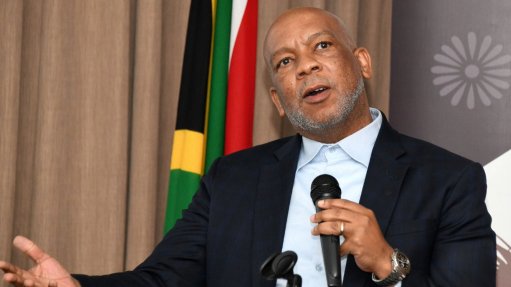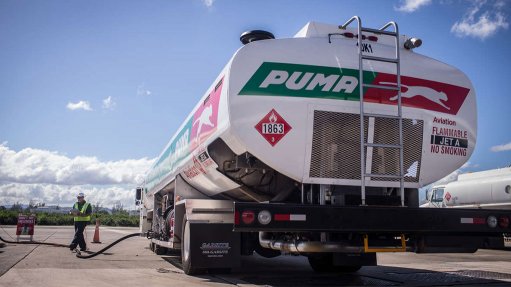Quell, the beloved country
As I am not trained in the finer points of the law, having taken only two compulsory first-year modules at university, I have always wondered whether there is a difference between the law and justice.
With the Public Prosecutor’s ‘State of Capture’ report having just been released, the question reverberated in my mind a few days ago, and I again attempted to answer it, this time with the help of my favourite search engine. It revealed – not from South African sources, it must be said – that the law is the body of rules that govern a society, while justice is a standard of morality that determines what is right and what is wrong; the source is the Santa Clara University. The Canadian Department of Justice contends that “rules are meant to control or change . . . behaviour” that is “enforced by the courts”, so the law “keeps society from degenerating into chaos”. The department adds that an important characteristic of law is that it applies equally to all people living within a country, while justice, on the other hand, is less tangible, evoking ideas of fairness and equity. In essence, justice is “the right thing to do”, and since justice determines proper social conduct, it has immense political implications. In other words, its affects the public affairs of a country.
Interestingly, a synonym for the word ‘implication’ is ‘entanglement’, which is defined as a complicated or compromising relationship or situation. If ever there was a word to summarise present-day South Africa, this, in my view, is it. It is reminiscent of the immortal words of Walter Scott: “Oh, what a tangled web we weave . . . when first we practise to deceive.”
While on the topic of Webs, accord- ing to a November 3 article on http://businesstech.co.za, the ‘State of Capture’ report revealed two alarming realities, even though much of the Public Protector’s observations are nothing new. The first is that State institutions are powerless to fight the abuses brought on by undue influence while it is happening, and can only do something after the fact – only after a report like the ‘State of Capture’ document has been published. The emphasis is on ‘while it is happening’ – in other words, when it is being perpetrated. This means being caught with the proverbial smoking gun, that is, conclusive evidence of a crime or similar act, but just short of being caught in flagrante delicto. (The latter legal term is used to indicate that the perpetrator has been caught in the act of committing an offence.) The second reality is that the evidence shows that the African National Congress (ANC) itself knows, and has known for a long time, about the goings-on mentioned in the report, but has done absolutely nothing to stop them. (The emphasis is on “but has done absolutely nothing to stop them”.) This is reminiscent of the immortal words of Edmund Burke: “The only thing necessary for the triumph of evil is for good men to do nothing.”
Are these realities indicative of the existence or prevalence of corruption? To answer this, you need to consider what corruption is. The simplest definition of corruption, according to http://www.corruptie.org, is the use for private gain of public power (by elected politicians or appointed civil servants – in South Africa, we know them as government officials, which says a lot, as it implies that they are not there to serve). A much more difficult definition was proffered by Professor (emeritus) Dr Petrus van Duyne: “Corruption is an improbity or decay in the decision-making process in which a decision-maker consents to deviate or demands deviation from the criterion which should rule his or her decision-making, in exchange for a reward or for the promise or expectation of a reward, while these motives influencing his or her decision- making cannot be part of the justification of the decision.”
Corruption is a scourge driven by an insatiable greed or a desire to extract unduly from society without caring to contribute. According to a study titled ‘Characteristics and causes of global corruption’, which studied corruption in five countries, corruption-wise, the five countries were found to be quite representative of corruption in at least 30 countries around the world, including South Africa. All these countries display three important traits that are frequently underestimated in the West, including Europe. These are the enormous sums of money involved; the type of corruption is not the work of a few rogue actors lining their own pockets; whole governments have become structured around the objective of maximising private returns to their members; and there is nothing indirect or victimless about this kind of corruption.
It is quite evident that corruption is endemic and prevalent in South African society today and has, in fact, been so for quite some time. The ‘State of Capture’ report was released ten years and one month to the day since an event which you may recall. It might feel like it occurred yesterday, but, oh, how time flies and things stay the same. I provide a succinct summary, which my favourite search engine attributes to Max du Preez. On October 6, 2006, the president of the Supreme Court of Appeal, Judge CT Howie, issued the judgment of a full bench that had heard Schabir Shaik’s appeal of his conviction on corruption and fraud charges. In the judgment, the relationship between Shaik and Jacob Zuma was termed a “sustained corrupt relationship” as well as “an overriding corrupt relationship”.
It seems corruption continues unabated, as if there is no economic cost associated with it, but is it so? No cost? Well, according to a Reuters report published on November 3, Zuma’s crisis-ridden leadership has cost South Africa just shy of $50-billion. At the rand:dollar exchange rate of November 3, $50-billion is equivalent to R672.26-billion. Yes, billion rands. Makes a certain homestead and fire pool seem like a steal. Well, maybe they were, considering that the South African economy is valued at R4.3-trillion, according to the Medium-Term Budget Policy Statement 2016.
If anything, all this is indicative of the erosion of law and the undermining of justice in South African society. To paraphrase Winston Churchill’s “never was so much owed by so many to so few”, never was so much taken by so few from so many. Churchill also said something that many South Africans are no doubt praying for their leader to heed: “You can always count on Americans to do the right thing – after they’ve tried everything else.”
But it is Bob Marley who says it best: “The greatness of a man is not in how much wealth he acquires, but in his integrity and his ability to affect those around him positively.”
All I can say is quell, the beloved country, which is being smothered, stifled, strangled, throttled, overpowered, overwhelmed, vanquished, devastated, obliterated, wrecked and ruined.
Comments
Announcements
What's On
Subscribe to improve your user experience...
Option 1 (equivalent of R125 a month):
Receive a weekly copy of Creamer Media's Engineering News & Mining Weekly magazine
(print copy for those in South Africa and e-magazine for those outside of South Africa)
Receive daily email newsletters
Access to full search results
Access archive of magazine back copies
Access to Projects in Progress
Access to ONE Research Report of your choice in PDF format
Option 2 (equivalent of R375 a month):
All benefits from Option 1
PLUS
Access to Creamer Media's Research Channel Africa for ALL Research Reports, in PDF format, on various industrial and mining sectors
including Electricity; Water; Energy Transition; Hydrogen; Roads, Rail and Ports; Coal; Gold; Platinum; Battery Metals; etc.
Already a subscriber?
Forgotten your password?
Receive weekly copy of Creamer Media's Engineering News & Mining Weekly magazine (print copy for those in South Africa and e-magazine for those outside of South Africa)
➕
Recieve daily email newsletters
➕
Access to full search results
➕
Access archive of magazine back copies
➕
Access to Projects in Progress
➕
Access to ONE Research Report of your choice in PDF format
RESEARCH CHANNEL AFRICA
R4500 (equivalent of R375 a month)
SUBSCRIBEAll benefits from Option 1
➕
Access to Creamer Media's Research Channel Africa for ALL Research Reports on various industrial and mining sectors, in PDF format, including on:
Electricity
➕
Water
➕
Energy Transition
➕
Hydrogen
➕
Roads, Rail and Ports
➕
Coal
➕
Gold
➕
Platinum
➕
Battery Metals
➕
etc.
Receive all benefits from Option 1 or Option 2 delivered to numerous people at your company
➕
Multiple User names and Passwords for simultaneous log-ins
➕
Intranet integration access to all in your organisation


















